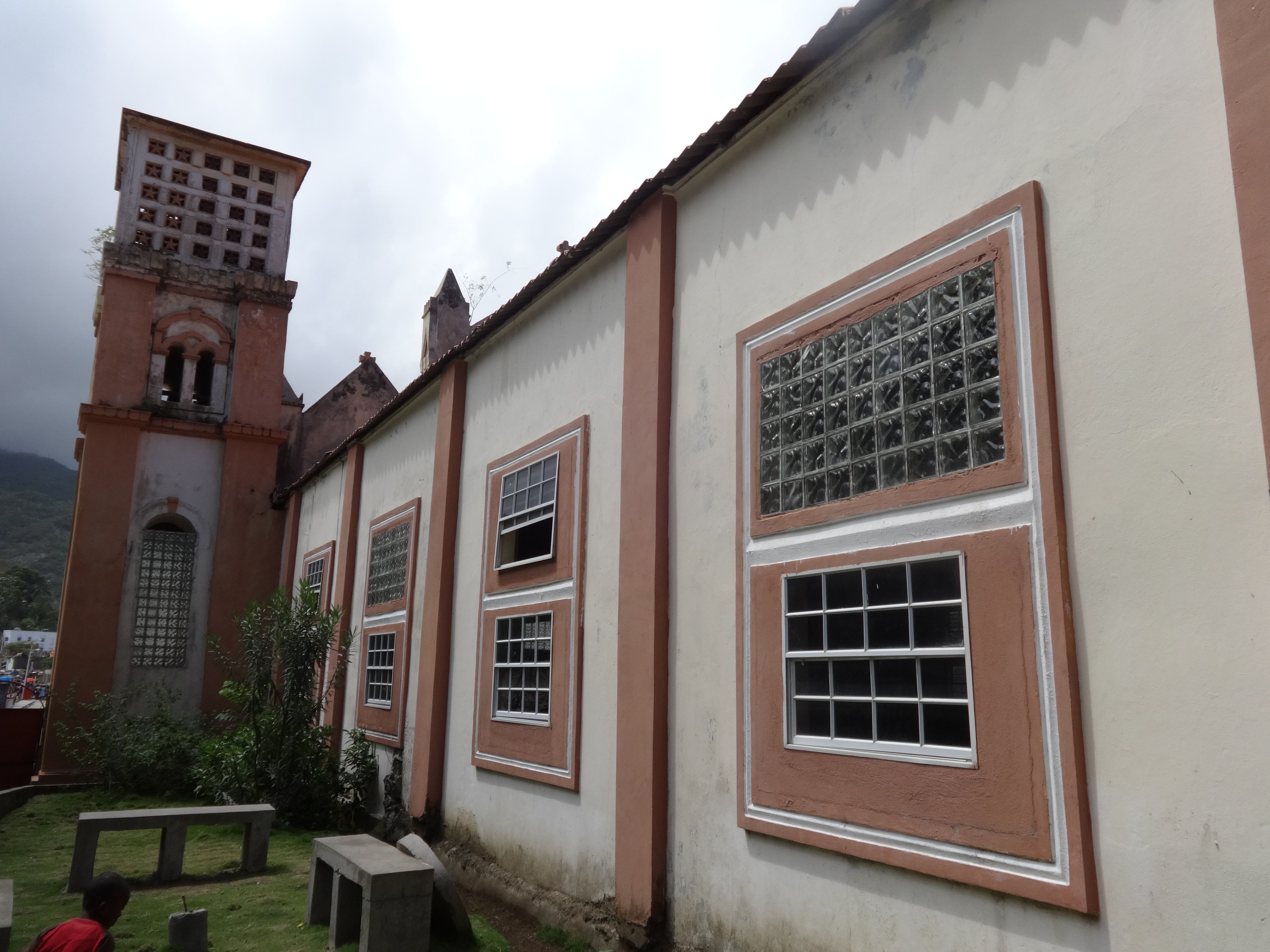One of the biggest cultural adjustments that most Americans experience when visiting Haiti is schedule. “We’ll leave at 2” or “We’ll meet at 5” or “Church starts at 8” don’t mean quite the same thing in Haiti as they do in the U.S.
Haitian culture tends to treat time with a greater sense of fluidity, and the people there have a different perspective on what takes priority. In my experience, Haitian people generally make time to talk, to catch up, and to check in with friends, family and neighbors. These exchanges are part of the day, instead of being an interruption to a packed schedule. Community events are also unlikely to begin as scheduled, and may be indefinitely delayed by weather.

Skies are clearing above Legliz Katolik in Borgne, Haiti. The morning we went to Catholic Mass we waited for nearly an hour once arriving at the church at the “designated” time. While we were not alone in the sanctuary there were many who had decided to wait out the rain before making the trek in their Sunday best.
So how is your project going to work in Haiti? After all of the preparation that went into your trip to Haiti, it might be tempting to focus on getting “the task” done at any cost and “down time” or “wait time” can feel like a huge waste of time. It might seem like you’re not doing what you came here to do if afternoon plans get washed out by a rainstorm, or the morning doesn’t start until much later than anticipated because your guide/translator/host arrived anreta (late).
Here’s the thing though, at any given moment, odds are there is probably someone around to talk to, someone happy and eager to engage in a conversation. My experience in Haiti changed completely when I stopped fretting over the minute hand on my watch, and boldly went into the realm of unplanned conversation. Sometimes an impromptu exchange can be one of the best things to come out of a trip.
So yes, plan ahead, be organized, and be ready to do the work you came to do, but don’t let “getting the job done” keep you from taking full advantage of less obvious opportunities. Above all, you are there to connect with people, and that’s not something you can necessarily schedule.
by Erin Nguyen on October 2, 2014
